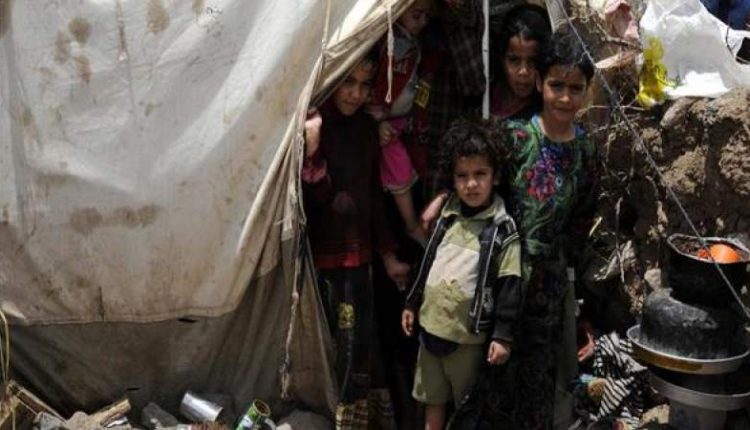UN Envoy Gives US-Saudi Aggression Permission To Continue Its Economic War Against Yemen
Never has international laws been subjected to such obstruction as what is happening towards Yemen.
In a tweet on his Twitter account, UN envoy Grundberg expressed his regret at what he considered “the additional demands of Sana’a that cannot be met,” referring to the demand for paying salaries of employees and retirees.
While the briefing of the UN envoy to the UN Security Council, Thursday, was nothing more than a complicit statement with the US-Saudi aggression to disrupt the rights of the Yemeni people. He announced the delay of Sana’a’s demands, of the salaries, to the stage of final settlements of the crisis in Yemen, providing the aggression an open check to pressure the Yemenis to make unfair concessions.
Since the first day of the US-Saudi military attack on Yemen, international law and humanitarian norms have been absent from what is happening against Yemenis in terms of systematic killings as a result of the siege and bombing.
It appears from Grundberg’s briefing to delay Yemenis’ legitimate demands for salaries that the United Nations does not expressly object to the continuation of the grave violations that Yemenis are subjected to by the US-Saudi aggression, including direct killings by bombing.
Although the coalition-backed government pledged to continue disbursing employees’ salaries and paying the operating expenses of the service sectors, during the transfer of the Central Bank from Sana’a to Aden, in September 2016, with the approval of the World Bank and the International Monetary Fund, of the United Nations, the latter proved an unacceptable inability to pay the salaries of employees, considering the issue of salaries as a basic right that is not subject to the extortion of political bargains.
There is a lot of injustice the Yemeni people are subjected to, by the aggression with the encouragement of the United Nations, where hundreds of thousands of employees are located in the areas under the control of the Sana’a government, their salaries have been cut off since October 2016 by the pro-aggression government.
Despite this government adopting its annual budget, including the salaries of employees throughout Yemen, more than 53% of employees in densely populated areas do not receive any of their salaries, which has raised the economic crisis in the country, and contributed to the deterioration of the role of government institutions.
Regarding some aspects of the economic war that the Yemeni people are exposed to, such as the issue of the deliberate collapse of the Yemeni currency by the pro-coalition government, we find that the Yemenis are suffering from a compound starvation disaster, which has violated the simplest means of decent living needs of the Yemeni people.
The United Nations and its envoy, Hans Grundberg, need to review their positions and retreat from the coalition’s efforts to starve the Yemeni people, especially since Grundberg himself had called in his briefing before the Security Council in October last year to “stop the economic escalation”. A demand that came after a series of statements by the same envoy in which he considered that the economic war is the biggest dilemma facing the Yemeni people
Saudi Arabia and the UAE, backed by the United States and regional allies, launched the war on Yemen in March 2015, with the goal of bringing the government of former Yemeni president Abd Rabbuh Mansour Hadi back to power.
The war has left hundreds of thousands of Yemenis dead and displaced millions more. It has also destroyed Yemen’s infrastructure and spread famine and infectious diseases there.
As part of its economic war, the US-Saudi aggression worked to drain about 97% of the Yemeni state’s resources, either by controlling them militarily such as oil and gas sources, freezing Yemeni foreign assets and transferring them to mercenaries and financing coalition operations, or imposing siege on the vital port of Hodeidah and the most important port after Aden, which is still in the grip of Sana’a and out of control of the aggression.
Source YPA translated by Almasirah English website

